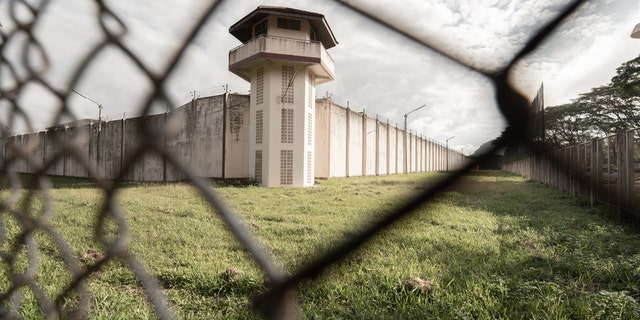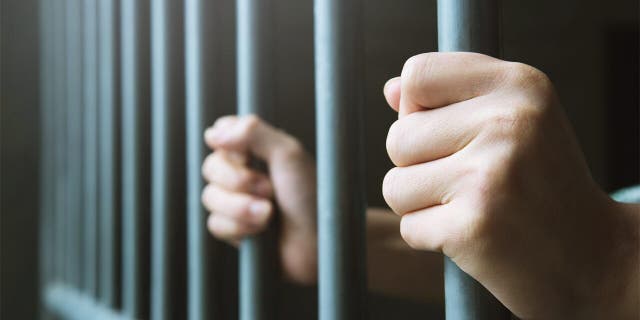I went through the juvenile justice system. Now, I'm fighting to change it
The current situation is a failure of the system, not the youth. And there is plenty of evidence to prove it
I first entered the juvenile justice system when I was just 15. After bouncing in and out for a few years, I aged out at 18 and found myself completely on my own. I wanted to get on a better path. But I had no work experience, no marketable skills, no one to mentor me – and no idea how to start. On top of that, I was fearful of the prejudice people would hold against me if they found out about my past.
Then, my therapist suggested a program that changed my life.
In 2019, I entered Café Momentum, a restaurant that provides justice-involved youth with a year-long paid internship and support ecosystem. Today, I'm an aspiring dental assistant, a mentor for other youth trapped in the system, and an advocate for change in the juvenile justice system. My dream is to start a nonprofit beauty school for human trafficking survivors. And with a newfound belief in myself, I have every confidence I will be able to achieve it.


Most kids trapped in our justice system never had a fighting chance growing up. (iStock)
Unfortunately, most justice-involved youth are not given the first chance that Café Momentum gave me. I say "first chance" because that's the reality. Most kids trapped in our justice system never had a fighting chance growing up. Many of them lacked support systems, which led them down the road to incarceration. And contact with the justice system only makes it more difficult for them to forge a new path.
FELONS ARE GROOMING KIDS TO COMMIT CRIMES, AND THE LAW IS ON THEIR SIDE, SHERIFF SAYS
That was certainly my experience. My father was incarcerated when I was young, and without him around, I ended up falling down the wrong path and became a victim – now survivor – of human trafficking. But even though I had experienced all of that trauma, it took years to get the help I needed from the system.
That's because the current system is not set up to help youth flourish.
The United States has one of the highest youth incarceration rates in the world, 11 times higher than Western Europe. Some incarcerated kids are under the age of 12.

The United States has one of the highest youth incarceration rates in the world, 11 times higher than Western Europe. (iStock)
During my time in the system, I witnessed racial disparities that my peers had to contend with. Black youth, for example, are close to five times more likely to be incarcerated than White youth.
Juvenile facilities are not rehabilitative. They exacerbate mental and physical health issues. And they do little to prepare youth to re-enter society, continue their education, or hold a steady job, which contributes to high recidivism rates – within five years of their release, up to 84% of incarcerated youth re-offend. A recent report out of Dallas, Texas, where I live, found the city's juvenile justice system actually created more crime. According to the district attorney, "instead of rehabilitating children, many of them we probably created criminals out of."
Make no mistake, the current situation is a failure of the system, not the youth. And there is plenty of evidence to prove it.
In a recent cohort, close to 90% of Café Momentum interns had completed or were enrolled in high school whereas nationally, only a third of justice-involved youth continue high school. The reconviction rate for Café Momentum interns is 0%, while the Texas state average is 12%.

The reconviction rate for Café Momentum interns is 0%, while the Texas state average is 12%. (iStock)
BronxConnect is another example of what is possible when we provide young people with a positive support system. This incarceration alternative for court-involved youth in New York City provides mentorship, case management services, and educational and job support. In a 2018 study, 97% of program participants who had originally been charged with violent felonies remained conviction-free three years later.
On the West Coast, Fresh Lifelines for Youth provides mentorship programs and re-entry assistance to youth exiting the justice system, including case management support, law-related education, and community-building events. More than 80% of program participants do not recidivate.
REPORT SAYS PENNSYLVANIA JUVENILE DETENTION CENTER HAD A ‘DANGEROUS LACK OF OVERSIGHT’
Across the county, there are countless examples of community programs that successfully help youth get on a better path. I am living proof of what's possible when people believe in you instead of writing you off as a throwaway.
The current juvenile justice system is not set up to empower youth to be successful. We have to change how we think about juvenile justice in America. We need to grow community programs that provide youth with the support, resources and opportunities they need to realize their full potential and be able to contribute to their community and society.


First, providing transferable, marketable job skills is key. Restaurant work is a great example. (iStock)
Based on my experience, a successful program will include the following components.
First, providing transferable, marketable job skills is key. Restaurant work is a great example. It might not be obvious, but the skills I honed working in a restaurant are highly transferable.
The customer service skills I developed by interacting with guests and scheduling reservations over the phone and on the computers, as well as learning how to be a team player and having a good work ethic, have served me well in my dental training. And, they apply to most other industries.
Fellow members of my cohort have gone down all sorts of career paths, such as nursing, entrepreneurship and the military. They all credit Café Momentum for providing them with baseline skills.
Any successful program must be holistic in its approach and teach life skills that the justice system, and our education system, skip, such as how to manage a bank account. These lessons, along with educational support, are crucial for any program looking to set justice-involved youth up for success. They also provide an opportunity for youth to explore their natural gifts and talents – it was through these classes that I discovered my passion for advocacy and public speaking, which is why I'm writing this today!

Fellow members of my cohort have gone down all sorts of career paths, such as nursing, entrepreneurship and the military. (iStock)
Then there is structure. This is a major element of what I think made my experience at Café Momentum so successful. Structure provides youth with the framework they need to ease out of the justice system, learn valuable time management skills, and practice self-discipline.
Finally, an ecosystem of support is necessary for any successful program. Young people need someone to believe in them. The moment I walked through Café Momentum's doors, I could feel that they believed in me. I cannot tell you just how empowering this was, to have a group of people who saw beyond my experiences and recognized the potential within me. It is what inspires me to be a mentor for youth who are in the same situation I was in just four years ago.
I have big goals for the future, but I'm not ashamed to speak about my past anymore because I know I have grown and changed since my teenage years. I also know that my experiences with the juvenile justice system as a teenager helped shape me into the fierce advocate I am today. After all, you can't testify without being tested.
No one is a throwaway. It's time for communities – from business leaders to nonprofits – to give our youth a fighting first chance. You might be surprised by what they achieve.
No comments: